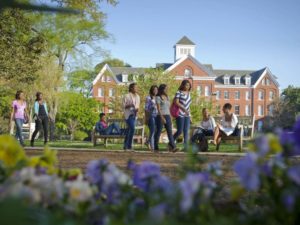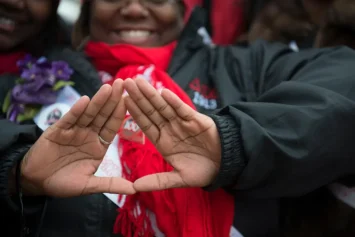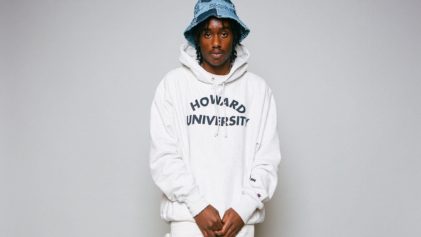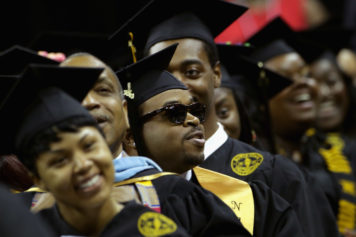As Spelman College celebrates its 136th anniversary today, its legacy reminds us of the role historically Black colleges and universities play in the advancement of African-Americans and why we must preserve their significance in our communities.
Ranked No. 1 among HBCUs by U.S. News & World Report, notable Spelman alumnae include Pulitzer Prize-winning novelist Alice Walker, playwright Pearl Cleage and former Dean of Harvard College Evelynn Hammond. The college ranks in the top 10 of women’s colleges across the country and is the second-largest producer of African-American college graduates who attend medical school.
Though Spelman stands out amongst its peers, the HBCU system has played an integral role in the upward mobility of Black Americans since its establishment following the Civil War. When Jim Crow laws attempted to keep us stuck in the past, they provided safety and opportunity, and what began as a way to keep us “separate but equal” turned into a support system that has since graduated some of our most esteemed leaders. A 2015 Gallup poll also showed that Black graduates of HBCUs fare better than those who went to non-HBCUs across a multitude of categories include financial well-being, purpose and even physical well-being. According to the poll, HBCU graduates felt more supported by their professors and had better opportunities for mentorship. Only 25 percent of Black graduates from other institutions reported that their professors cared about them as people, compared to 58 percent of graduates from HBCUs.
Despite these successes, HBCUs have struggled in recent times. Desegregation, rising incomes and more opportunities for financial aid have provided Black students with more choices, and HBCUs have seen their enrollment numbers stay relatively flat over the past 25 years with small increases in enrollment. The National Center for Education Statistics (NCES) figures show that in fall 2015, the combined total enrollment of all HBCUs was 293,000, compared with 234,000 in 1980. By comparison, enrollment at other universities and colleges nearly doubled during that same time.
Earlier this year, HBCU leaders went to the White House to meet with the Trump administration in hopes of securing additional funding in future years. At first encouraged by his executive order transferring oversight of a federal HBCU initiative from the Department of Education to the White House, they got a reality check not long afterward when the administration released its “America First” budget proposal. The budget cut federal education spending by 13.5 percent, and though it maintained funding for minority institutions and HBCUs at around $492 million, it eliminated the discretionary funding provided by the previous administration. This poses a problem for the 70 percent of HBCU students who rely on federal grants and work-study programs to finance their education.
HBCUs aren’t letting these numbers discourage them and if anything, they’ve upped the ante with new program launches and expansions. Last month, Howard University announced the launch of a new West coast campus at the GooglePlex in Mountain View, Calif. Created with a mission to increase diversity in the tech industry, “Howard West” will provide residency to Black Computer Science majors and will further Google’s efforts to recruit more Black software engineers from HBCUs. The program begins this summer and will allow juniors and seniors to attend Howard West for three months at a time. The campus will be a dedicated space at Google, and senior Google engineers and Howard faculty will serve as instructors.
Columbia University also is launching a new program this summer and will open its doors to two students from each of the top 10 HBCUs. The chosen students will get the opportunity to earn a one-year master’s degree from their choice of 40 programs of study and 14 areas of discipline. They’ll also receive access to industry mentors, career coaches and Columbia’s alumni network, followed by a paid summer internship and the possibility of a job offer from one of the program’s 11 Fortune 500 partners. The scholarship was spearheaded by Jason Wingard, professor and dean of Columbia University’s School of Professional Studies, who was dismayed when he heard corporations blame their lack of diversity on a limited number of qualified candidates. If this model proves effective, more HBCUs and students may be invited to join the program in the upcoming years.
Students and alumni also are rallying behind HBCUs and have planned a National Day of Action on April 27, when they will gather on Capitol Hill to increase awareness and support for these institutions. Organized by the HBCU Collective, a group of advocates who work in politics, education and policy, the mission for the rally is to pressure the lawmakers into maintaining funding and increasing resources for HBCU students.
Spelman College has seen its fair share of challenges over the past 136 years and will undoubtedly be faced with more in the years to come. The value of HBCUs in the Black community is unparalleled and it will be up to the Black community to ensure that these institutions are preserved and that HBCUs are able to provide a safe haven for learning in the years to come.



